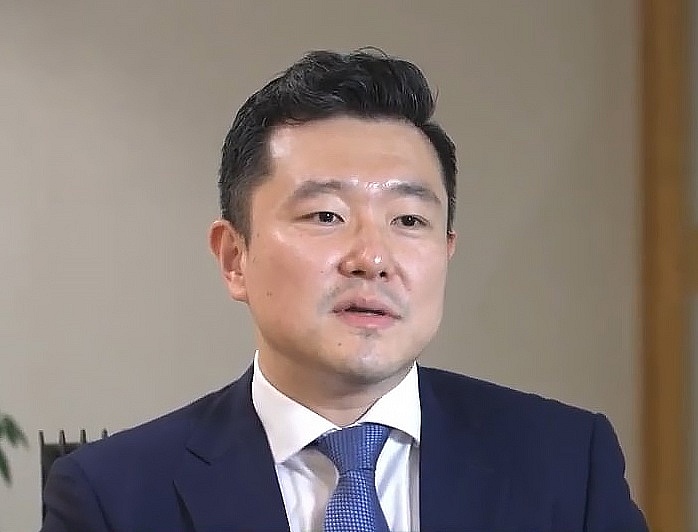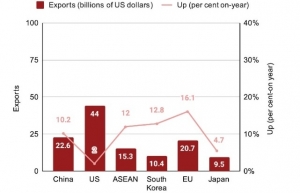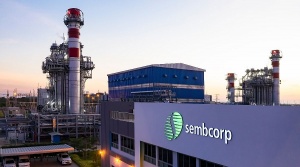An effective transition towards becoming net-zero powerhouse
With industry giants like Samsung, Apple, Nike, and H&M, among others, committed to source electricity 100 per cent from renewable energy by 2050 operating in Vietnam, the requirement for more clean energy solutions is an immediate task.
While the country has taken bold strides to position itself as a linchpin in the global journey towards a net-zero future, opinions on its readiness to lead this transition remain divided internationally. To bolster Vietnam’s path forward, I propose three key recommendations.
 |
| Juhern Kim, country representative to Vietnam Global Green Growth Institute |
The first and most critical step is securing financing, and green bonds can be a key source. The World Bank estimates that Vietnam will need around $360 billion by 2040 to meet its Nationally Determined Contributions (NDCs) and achieve a net-zero transition.
Specifically, the energy sector requires over $130 billion in investments for new power plants and grid infrastructure, as outlined in Vietnam’s Power Development Plan VIII. These figures highlight the urgent need for sustainable finance markets to mobilise the necessary capital, with green bonds playing a pivotal role in this transition.
Since their inception in 2007, green bonds have emerged as a crucial instrument for mobilising climate finance, gaining significant traction globally. In 2023, global green, social, sustainability, and sustainability-linked (GSS+) bond issuances recorded $939 billion according to Bloomberg data.
Meanwhile, in the ASEAN markets, sustainable bond issuances totalled $19.1 billion in the same year, according to the Asian Development Bank. Governments across the region are enhancing policies to spur the growth of green markets. Malaysia, Indonesia, Singapore, and Thailand have already published their own green taxonomies, with Vietnam following closely behind.
Green bonds can provide the necessary capital to mitigate climate risks and support Vietnam’s commitments under the Paris Agreement. Vietnam’s initial ventures into green bonds, such as EVN Finance’s $75 million issuance in 2022 and BIDV’s $100 million issuance in 2023, are promising signs. Yet, these efforts only scratch the surface of what’s needed for a truly transformative change. In this process, the government’s incentivisation for more green bond issuances, will be key to ramp up the speed.
Secondly, it’s crucial to prioritise the establishment of a strong pipeline of bankable projects. The success of GSS+ bonds relies heavily on nurturing projects that can attract both domestic and international investors. To instil investor confidence, these projects need to guarantee returns and deliver tangible environmental benefits.
Achieving this requires a collaborative effort from both the public and private sectors. It starts with a systematic process to identify potential green projects, followed by thorough preparation involving feasibility studies, environmental impact assessments, and strong financial planning. It’s crucial to build the capacity of central and provincial governments, project developers, and financial institutions.
Additionally, robust policy frameworks and regulatory support are essential, including tax incentives, subsidies, and guarantees for green projects. These measures help to de-risk investments and make them more attractive to investors, ensuring a steady flow of capital into sustainable initiatives. This approach will foster a conducive environment for the growth of green and sustainable finance and support the broader objectives of sustainable development and net-zero transition.
Lastly, establishing strategic partnerships with international organisations is essential for accelerating the transition. These entities can significantly contribute to nurturing the transition by providing technical assistance, capacity building, and financial support to develop the GSS+ bond market while enhancing bankability of projects. Notably, they can act as intermediaries in attracting international investors by ensuring transparency and compliance with global standards.
Globally, the Global Green Growth Institute (GGGI) has been bolstering its support to accelerate the adoption of sustainable financial instruments in emerging economies. In Vietnam, it is partnering with the Ministry of Planning and Investment and Ministry of Finance to rally international support, streamline transactions, aid policy development, and strengthen the capacity of market stakeholders. The GGGI’s global presence underscores its effectiveness in driving green bond issuances, totalling $1.54 billion since 2017.
Moreover, expediting the sustainable finance market extends far beyond financing alone. It can drive proactive project identification and structuring, stimulate the growth of innovative climate technologies, and generate green employment opportunities. In this regard, the GGGI has been instrumental globally in aiding the development and financing of bankable projects, as outlined in its Annual Report 2023.
Vietnam stands at a crucial juncture. While its burgeoning manufacturing prowess holds immense potential, the trajectory could shift if global manufacturers prioritise green initiatives without sufficient support from the country. Conversely, accelerating this transition could elevate Vietnam’s global standing, positioning it as a leader as a net-zero economic powerhouse beyond its manufacturing prowess.
The 2025 P4G Summit in Hanoi, just five years before the NDC target year, will shine a global spotlight on Vietnam, providing a prime opportunity to demonstrate its progress and determination in green growth and net-zero. Until then, more concrete and practical success stories are required – whether they involve small or large wins. The GGGI will be pleased to extend its technical assistance in achieving those wins.
 | Vietnam increasing in importance for British trade Despite global economic headwinds, Vietnam is one of the most rapidly growing economies in the Asia-Pacific region, with 5.7 per cent growth in Q1 and expected growth between 5 and 6 per cent this year. |
 | FDI to be expanded with green focus Vietnam is projected to improve its trade and investment flows as global demands increase, with a green trend on the rise in supply chains. |
 | China speeds up investment in Vietnam An upward trend has been recorded in Chinese recent investments in Vietnam, which is hoped to help fuel the industries the country has demand for such as high technology, renewables, supporting industries, electronics, and green finance. |
 | Renewable energy on the table for Vietnam Vietnam is considered a fertile ground for the renewable energy industry, according to the May 28-29 forum. |
 | Sembcorp strengthens VSIP portfolio in Vietnam Sembcorp Development, a wholly-owned subsidiary of Sembcorp Industries (Sembcorp), has announced the addition of three Vietnam Singapore Industrial Parks (VSIP) to its portfolio. |
What the stars mean:
★ Poor ★ ★ Promising ★★★ Good ★★★★ Very good ★★★★★ Exceptional
Related Contents
Latest News
More News
- Digital shift reshaping Vietnam’s real estate brokerages (December 31, 2025 | 18:54)
- Allen & Gledhill recognised as Outstanding M&A Advisory Firm (December 18, 2025 | 14:19)
- Inside Lego Manufacturing Vietnam (December 18, 2025 | 11:45)
- The next leap in Cloud AI (December 11, 2025 | 18:19)
- Vietnam’s telecom industry: the next stage of growth (December 11, 2025 | 18:18)
- Five tech predictions for 2026 and beyond: new era of AI (December 11, 2025 | 18:16)
- CONINCO announces new chairman and CEO (December 10, 2025 | 11:00)
- How AWS is powering the next-gen data era (December 09, 2025 | 13:14)
- Outlook in M&A solid for Singapore (December 08, 2025 | 10:31)
- Vietnamese firms are resetting their strategy for global markets (December 05, 2025 | 17:04)

 Tag:
Tag:




















 Mobile Version
Mobile Version